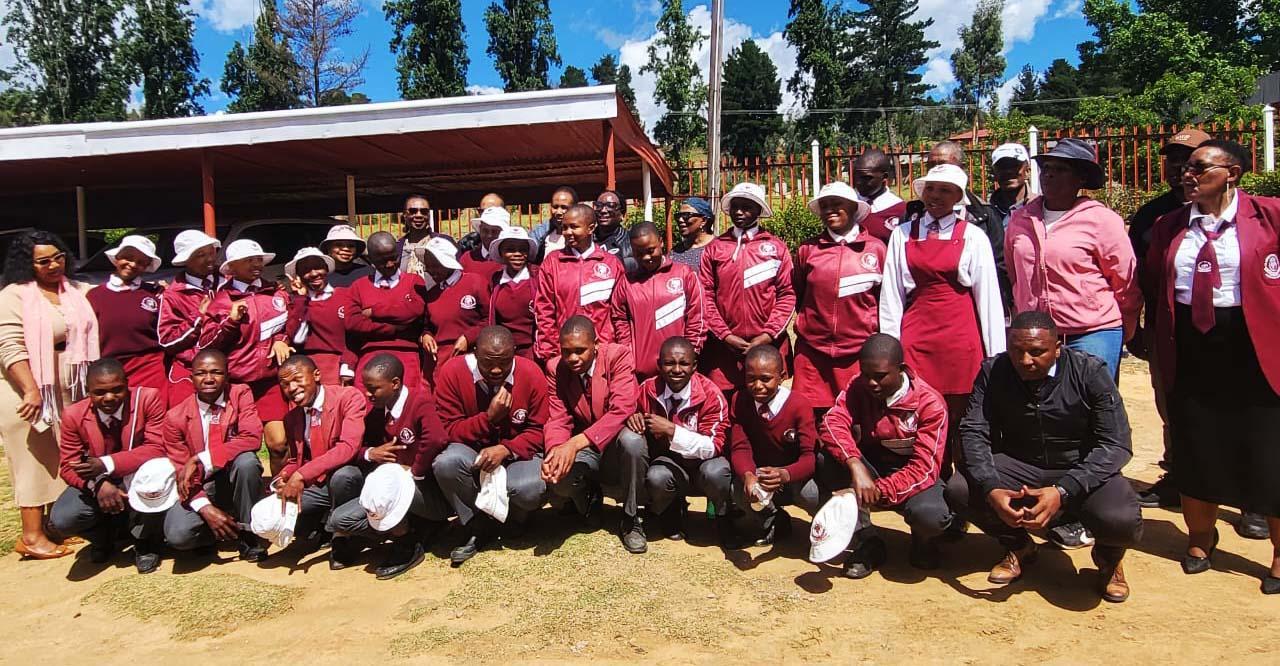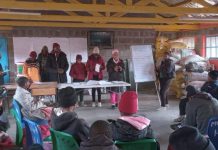Africa-Press – Lesotho. A parliamentary site visit to Leribe’s UNESCO-sponsored schools has uncovered shocking levels of dagga abuse among male students at St Philip’s High School, raising concerns over the growing social and mental health challenges facing Lesotho’s youth.
The visit, conducted this week by the Parliament’s Sustainable Development Goals (SDGs) Committee with support from the Southern African Development Community Parliamentary Forum (SADC PF), sought to assess the impact of Life Skills-Based Sexuality Education (LBSE) in local schools.
What the committee found was beyond learning challenges as the visit exposed an unsettling trend.
St Philip’s principal, ’Mampoi Hlasoa, did not mince her words as she described her growing concern.
“On the face of it the way these students seem to be well behaved — so obedient and neat — you would swear it’s a lie when we say they abuse dagga left, right, and centre. While you will not even see or catch them red-handed, their performance shows they are mentally affected,” Ms Hlasoa said.
She said she had observed that the problem often begins after the Christmas holidays when boys return from initiation school.
“When they come back, they will be totally changed,” she added.
Even more distressing, she noted, is that most of the boys come from poverty-stricken backgrounds so the Ministry of Social Development sponsors their education.
Many are orphans or are being raised by grandparents while their parents work in South Africa. Out of 208 students, only 37 are supported by their parents, while the rest depend on sponsorships.
Despite these challenges, Ms Hlasoa hailed the introduction of the LBSE programme, saying it had yielded significant results, especially in reducing teenage pregnancies.
“In 2018/19 we had 11 pregnant students, but this year we only had one — who just gave birth and is now writing her Grade 11 final exams,” she said proudly.
However, she conceded that the school’s academic performance remains worrisome.
Under the LBSE programme, school principals issue students with referral forms each time they leave school during learning hours. The forms should be filled in by the authorities from the place they would have visited to ensure school heads account for their whereabouts.
Against this background, Ms Hlasoa urged MPs to consider providing similar referral forms for teachers whenever they ask to go on personal errands such as banking or medical attention because a lot of teaching time is lost so their absences should be properly accounted for.
The District Education Officer and Northern Region LBSE Inspector, ’Mamotlatsi Khomari, acknowledged that LBSE had changed attitudes and reduced stigma — but said continuous teacher training was vital.
“The change started with teachers’ attitudes. Regular workshops have made a difference, but there’s a need for ongoing capacitation because new teachers join all the time,” Ms Khomari said.
LBSE teacher, Nthabiseng Thamae, added that the subject had broken long-standing taboos.
“Before, menstruating girls were accused of engaging in sexual activity. Now, both boys and girls understand the changes that come with growing up,” she said.
Another teacher, Ntsamaeng Jafeta, appealed to the MPs to ensure that the government supplies them with teaching guides for their different subject because many are teaching without proper guidance.
Responding to the concerns, SDG Committee member, ’Makatleho Motsoasele, urged the schools to collaborate with police in combating dagga abuse.
“Illegal dagga use and possession is a crime. It’s killing these children slowly,” she warned.
Another Committee member, Remaketse Sehlabaka, expressed concern over what he dubbed the “self-raised generation” saying that television and absentee parents were corrupting young minds.
“Parents are always busy while television raises the children. Teachers, you must play a parental role, and we as MPs must also do more,” he said, calling for regular inspection of students’ bags and a review of children’s rights laws that limit parental authority.
At Mahobong High School, principal ’Mamorare Toronko appealed for more subject-specific teachers, saying only four staff members manage eight LBSE grades for 370 students.
LBSE teacher, Mamithe Mabokoane, shared how her “Girls Talk” project has helped reduce teenage pregnancies — from four last year to one this year — by providing a safe space for girls to discuss sensitive issues.
Another Committee member, ’Malelaka Lehohla Malakane, praised the dedication of LBSE teachers and suggested they should be given incentives for their extra effort.
Meanwhile, Linotšing High School principal, ’Masakoane Mathaba Moloi, painted a grim picture of children left behind by parents who migrate to South Africa, leaving grandparents to raise them alone.
“Some of these children haven’t even registered for enrolment. They are abandoned,” she lamented, urging MPs to consider reducing the eligibility age for old age grants so that more grandparents can secure income to care for the children better.
The SDG committee chairperson, Itumeleng Rantšo, concluded that dagga abuse at St Philip’s and gender-based violence at Mahobong remain the most pressing challenges.
“We promise to take these issues up with the authorities and ensure these are followed up until solutions are found,” she said.
For More News And Analysis About Lesotho Follow Africa-Press






